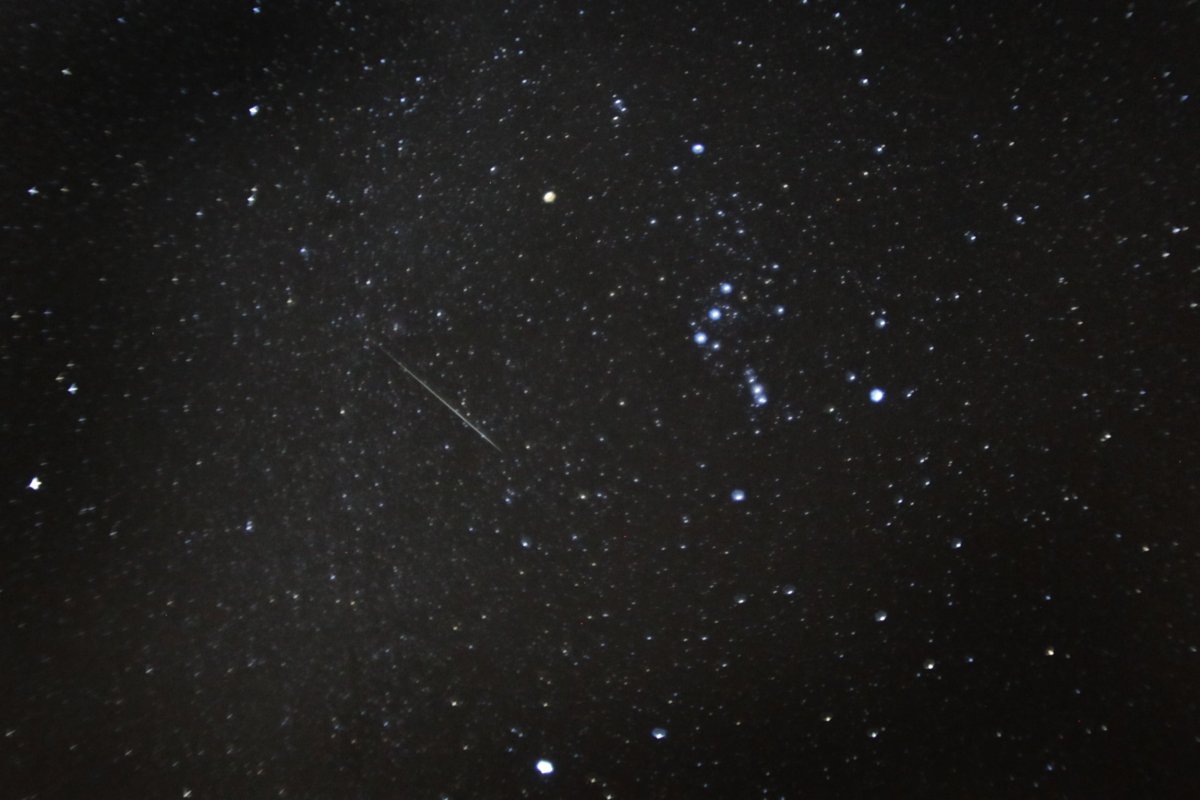Thursday's Google Doodle celebrates the spectacular Geminid meteor shower, which peaks tonight and tomorrow night.
The celestial event is caused by a stream of cosmic debris (known as meteoroids) falling into the Earth's atmosphere at around 80,000 miles per hour and lighting up the sky with brightly colored streaks, all of which appear to originate from the constellation Gemini (hence the name).
Related: Geminid meteor shower 2018: Everything you need to know about the fiery display
Luckily for us, most of these meteoroids are smaller than a grain of sand, meaning they will usually burn up and disintegrate before they reach the Earth's surface.
The cosmic debris that causes the Geminids comes from a strange object called 3200 Phaethon, which is named after a son of the ancient Greek god Helios.
3200 Phaethon is an unusual 3.6-mile-long asteroid that is sometimes described as a "rock comet"—a rare type of small solar system body that has the characteristics of both an asteroid and a comet. First discovered via satellite data 35 years ago, it has a wildly eccentric orbit, quite unlike most asteroids, which brings the object closer to the sun than Mercury. As it approaches the star, extreme heat causes the rock to fracture, leaving a trail of debris in its path.
"At its furthest point from the center of the solar system, 3200 Phaethon enters the asteroid belt between the orbits of Mars and Jupiter, around 223 million miles from the sun," Samantha Rolfe, an astrobiologist at Britain's University of Hertfordshire, wrote for The Conversation. "At its closest point, it's 13 million miles away—a mere stone's throw from the sun, in astronomical terms. Here, the asteroid can bake in temperatures up to 750 degrees Celsius."
Rolfe went on: "The extreme variations in temperature experienced by 3200 Phaethon, together with a very short day of just 3.6 hours and regular close encounters with the sun, causes the asteroid to shed dust and debris at a rate great enough that dust tails have been observed. This, and other observations, have led some astronomers to describe this object as a comet or a 'rock comet,' somewhat blurring the line between asteroids and comets."
Every December, Earth's own orbit takes the planet through Phaethon's debris trail, giving rise to the meteor shower. Along with the Quadrantids, the Geminids are the only meteor showers that do not originate from a comet.
The Geminids were first observed in 1862—much more recently than other showers, such as the Perseids (A.D. 36) and Leonids (A.D. 902)—and are thought to be intensifying with each passing year. In fact, in recent times, between 120 and 160 meteors have been recorded burning up in the Earth's atmosphere every hour.
As such, 2018 should be the best year ever to watch the Geminids if the weather is clear where you are. The meteors should be most visible around midnight on December 13 and 14, although you may be able to catch a glimpse of the cosmic debris right up until the 17th. For optimal viewing conditions, get as far away as possible from city lights and face south.

Uncommon Knowledge
Newsweek is committed to challenging conventional wisdom and finding connections in the search for common ground.
Newsweek is committed to challenging conventional wisdom and finding connections in the search for common ground.
About the writer
Aristos is a Newsweek science reporter with the London, U.K., bureau. He reports on science and health topics, including; animal, ... Read more
To read how Newsweek uses AI as a newsroom tool, Click here.








